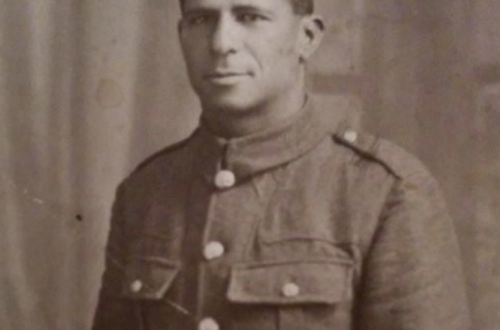THIS IS A GUEST POST BY SACKCLOTH AND ASHES.
Yesterday Sir Thayne Forbes, the chairman of the al-Sweady inquiry, produced his report on the allegations that in May 2004 British troops tortured detainees to death after a firefight with the Mahdi Militia at the checkpoint codenamed ‘Danny Boy’, South of the city of Al Amarah in Iraq. The executive summary of the report, here, makes it clear that these atrocity claims were ‘the product of deliberate and calculated lies on the part of those who made them and who then gave evidence to this Inquiry in order to support and perpetuate them’.
Back in May I noted the fact that Public Interest Lawyers (PIL) – representing the nine Iraqi insurgents/detainees whose stories lay at the centre of the inquiry – had effectively thrown in the towel. At the time, I also noted that for the lurid claims of torture, murder and dismemberment at Camp Abu Naji to be considered viable, one would have to believe that all the soldiers in the British Army unit deployed there (from the 1st Princess of Wales’ Royal Regiment battlegroup) were either complicit in these atrocities or in covering them up; that those responsible for such barbarity would have been daft enough to release nine witnesses who could incriminate them; and that alternative explanations for the injuries found on the dead (such as the possibility that they had been inflicted during a battle) had to have been definitely ruled out.
The ‘Guardian’ has responded – at least online – with the headline ‘UK troops mistreated Iraqis but did not murder them’. This ‘mistreatment’ – which included some sleep deprivation, shouting, and the menacing rattling of a tent-peg on a table during an interrogation – fell considerably short of the initial claims made by the 9 Iraqis that twenty of their compatriots were done to death in an absolutely foul manner, which included the castration and eye-gouging of some of the victims. Strangely enough, the nature of the initial allegations against the British Army is left out of Richard Norton-Taylor’s report.
Cahal Milmo of the ‘Independent’ has produced a balanced account of the outcome, observing that PIL and Leigh Day will be investigated by the Solicitors Regulation Authority over their handling of the case. Milmo’s colleagues at the ‘Indie’ should, however, reflect on the fact that up until recently their paper treated the al-Sweady allegations as if they were confirmed facts.
The key story about the al-Sweady inquiry is that there should never have been such an inquiry in the first place. I find it difficult to believe that PIL (or for that matter Leigh Day, the legal firm which initially handled the Iraqi militiamen’s claims) could have actually expected the investigation into the ‘Battle of Danny Boy’ and its aftermath to have ended vindicating their clients. When PIL’s leading lawyer Phil Shiner told the press back in 2008 ‘[do] not believe for one second that we make these allegations lightly or without the evidence available to substantiate every single word of what we say’, he was at the very least being ludicrously optimistic.
On two final points, our legal system can and should investigate genuine cases of military brutality – whether committed in war, or at home (as was the case with the abuse of recruits at Deepcut) – but it should also defend service personnel against spurious allegations made either out of a desire to obtain compensation on false grounds, or as part of an act of ‘lawfare’. Above all, my sympathies go to the veterans of the 1PWRR battlegroup and their families. The soldiers concerned not only had to endure a tough six month tour in Maysan province which saw almost constant and fierce fighting from Day 1, but a vicious and cynical attempt over the past five years to tarnish them as war criminals. I only hope that Sir Thayne’s report gives them the closure and vindication they deserve.
Alec adds: Part of the “procedural failings of the MoD” in not putting a fork in these demonstrable lies presumably was not making the link between Leigh Day solicitors and Leigh Day solicitors which brought a legal aid funded class action on behalf of scores of Kenyan women that they had been systematically raped by British soldiers over a period of several decades.
These too were found to have been fabricated.


